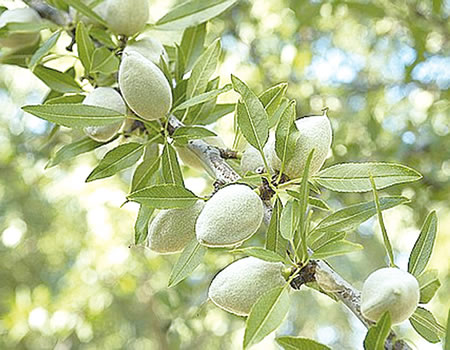Are you looking for a mouth wash that is effective against germs in the mouth that cause tooth decay, gum infection and so on? Well, nature’s mouth wash that is handy and safe without the dryness in the mouth that comes with other commercial mouth washes is Terminalia chebula, commonly referred to as Indian almond.
Expert’s assessment of Terminalia chebula extract have found that it suppresses the build of plaques and gum swelling as well as kill germs in the mouth that could cause tooth decay and bad breathe.
Scientists in China tested its ethanol extract in the laboratory and prove its usefulness in the treatment and prevention of periodontal disease.
Periodontitis, also generally called gum disease or periodontal disease, begins with micro organisms growth in the mouth and may end — if not properly treated — with tooth loss due to destruction of the tissue that surrounds the teeth.
Gingivitis (gum inflammation) usually precedes periodontitis (gum disease). In the early stage of gingivitis, micro organisms in plaque build up, causing the gums to become inflamed and to easily bleed during tooth brushing.
Although the gums may be irritated, the teeth are still firmly planted in their sockets. No irreversible bone or other tissue damage has occurred at this stage.
In the test, the scientists looked at its effect on loss of a tooth’s bone structure as a result of tooth decay or fracture as well as tooth swelling.
For the assessment, the scientists tested the ethanol extract of Terminalia chebula on common germs harvested from dental plaques obtained through regular scaling of the teeth of a participant without any oral mucosal disease.
The 2017 study showed that the ethanol extract of Terminalia chebula (EETC) has antibacterial effect and as such could effectively suppress the growth of germs in the mouth in a dose-dependent fashion.
In addition, the scientists said in the 2017 edition of BMC Complementary and Alternative Medicine that since it is not toxic to the structures in the mouth, it is safe for use.
According to them, “EETC is useful in reducing bacterial plaque accumulation and gingival inflammation, thereby preventing periodontal disease. Since the efficacy and safety of EETC has been established, it can be developed into a mouthwash without added alcohol.”
Many commercially available mouthwashes contain alcohol, which increases the risk of oral cancers and dry mouth.
However, further research, they said is needed to isolate and identify the beneficial chemical constituents in the extract that could be exploited for pharmaceutical use.
Previously, clinical trials of Almond fruit extract as a mouthwash preparation have reported reduced plaque accumulation and gingival inflammation. It was published in the 2015 edition of journal, Oral Health & Preventive Dentistry.
The study indicated that Almond fruits may prove to be an effective mouthwash, adding that it can in fact be used as an alternative to chlorhexidine mouth rinse since it has similar properties and without the side-effects of the latter.
Chlorhexidine, which is considered as a gold standard mouth rinse itself, is one of the brand name of mouthwashes. But it is not free of adverse effects. It has been reported that Chlorhexidine use results in staining of the teeth and restoration and altered taste sensation.
In 2009, scientists in Jundishapur Journal of Microbiology confirmed that it is protective against germs that cause tooth decay, saying that it could also serve as an alternative antimicrobial agent against tooth decay causing micro organisms.
The burden of tooth decay remains for entire life; as a tooth once destroyed requires restoration and maintenance throughout life. In addition, tooth decay and its sequel leads to pain, suffering, and dysfunction besides imposing an economic burden.
Moreover, in many traditional cultures, there are no plastic-bristle brushes; rather, almond tree is one of the herbal chewing sticks for relieving dental problems.
Various parts of Terminalia chebula is used for medicinal purpose. The medicinal effect is strongest when the fruit is ripe. It has been amply verified as being medicinally valuable to treat cancer, cardiovascular diseases, paralysis, sore throat, ulcers, gout, arthritis, epilepsy, cough, fever, diarrhoea, gastroenteritis, skin disorders, pile, urinary tract infection, and wound infections.
With piles, it stops the bleeding, reduces the pile mass and eases the bowel movements. It also promotes healing and reduces the swelling.
It is a remedy for constipation, vomiting and food poisoning. The unripe fruit is more laxative than the ripe fruit. To reduce the laxative effect, it is consumed in the dried or boiled form. Suffering from food poisoning? Eat fruit after meal to eliminate toxins due to food poisoning.






